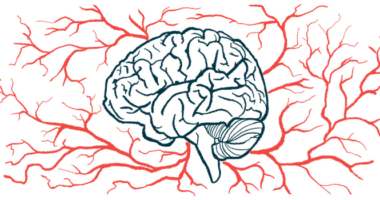EDIT-301 earns FDA orphan drug designation
Experimental gene-editing therapy is one-time infusion for sickle cell disease

The U.S. Food and Drug Administration (FDA) has granted orphan drug designation to EDIT-301, an experimental cell-based gene-editing therapy given as a one-time infusion for the treatment of sickle cell disease (SCD).
The designation is given to spur the development of therapies for diseases affecting fewer than 200,000 people in the U.S. With this designation, the therapy’s developer, Editas Medicine, is entitled to certain benefits, including tax credits to offset the costs of clinical studies and the exclusive right to market the therapy for a period of seven years upon its approval.
Receiving the designation “highlights the urgent need for new treatment options for patients and supports our belief that EDIT-301 can be a clinically differentiated, one-time, durable medicine that can provide life-changing clinical benefits to patients,” Gilmore O’Neill, president and CEO of Editas, said in a press release.
SCD is caused by mutations that result in the production of an abnormal version of hemoglobin, a protein in red blood cells that is responsible for carrying oxygen through the blood to body tissues.
Because of the abnormal hemoglobin, red blood cells acquire a sickle-like shape that makes them more prone to block blood flow and die prematurely. This “leads to anemia, pain crises, organ failure, and early death,” O’Neill said.
EDIT-301 uses hematopoietic stem cells, a type of stem cell that can give rise to all types of blood cells. These cells are taken from a patient and modified in the lab using gene-editing technology in such a way that they make high levels of fetal hemoglobin.
Fetal hemoglobin is a version of hemoglobin normally produced during fetal development. However, after birth, fetal hemoglobin is replaced gradually by the adult version of the protein, which is not as effective at carrying oxygen.
The genetic modification is made at a specific region of the gamma globin gene using a special enzyme called AsCas12a, which can chop up DNA once guided to specific locations. According to the company, this modification is expected to elicit a sustained increase in the production of fetal hemoglobin.
Modified cells are then given back to the patient via an intravenous (into-the-vein) infusion.
Ongoing clinical trial
The medicine is being evaluated in RUBY (NCT04853576), a Phase 1/2 open-label clinical trial that is evaluating the safety and efficacy of a one-time infusion of EDIT-301 in people ages 18-50 years with severe SCD.
Recruitment is ongoing at a number of locations across the U.S. and Canada, and the company says it remains on track to dose the first 20 patients by the end of this year.
Data from the first two patients in RUBY revealed that engraftment — the process by which transplanted stem cells travel through the blood to the bone marrow, where they begin to make new blood cells — had occurred as intended.
Moreover, the first patient had reached a level of total hemoglobin that fell within the normal range. That of fetal hemoglobin was high enough to stop red blood cells from taking on a sickle-like shape, according to the company.
“I would like to thank the participants, their families, clinicians, and colleagues at collaborating institutions that contribute to the RUBY trial,” O’Neill said. “We look forward to sharing further clinical updates and clinical data for the trial in the near future.”
The company plans to present further data from the RUBY study by mid-year and again by the end of the year.
The company previously received orphan drug designation for EDIT-301 for the treatment of beta thalassemia, a disease where the body does not make enough hemoglobin.
The therapy also holds rare pediatric disease designation for the treatment of both SCD and beta thalassemia.







